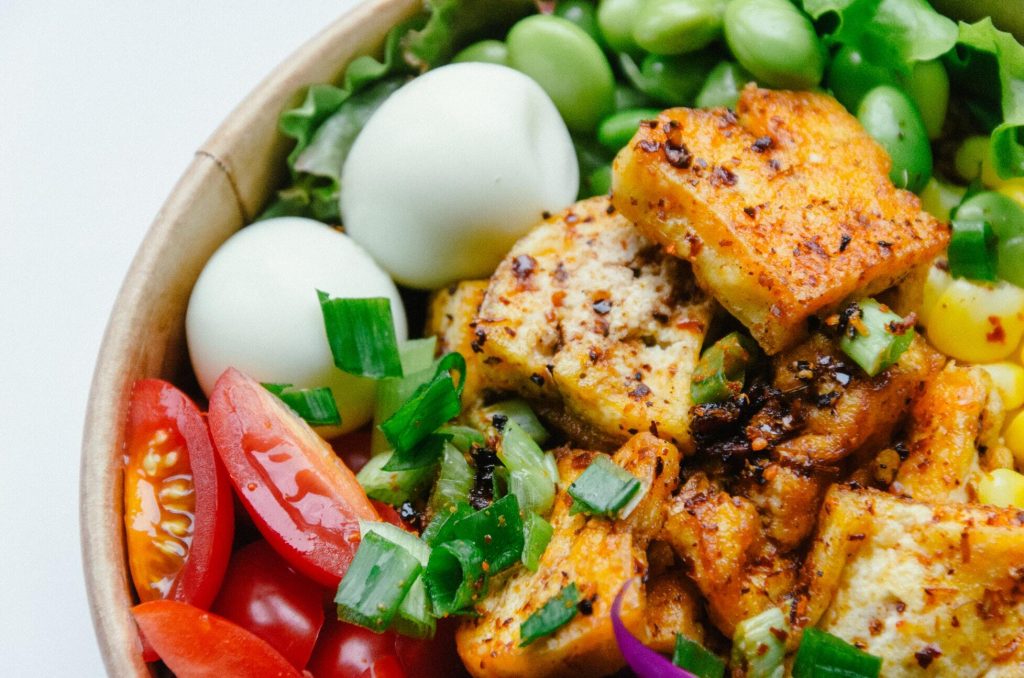After being postponed for a year due to the pandemic, the highly anticipated Tokyo 2020 Olympics will finally be hitting our screens over the next fortnight. As we settle down to enjoy the games, many of us might be wondering what the athletes have been doing to prepare for the long-awaited tournament.
With the help of Jenna Hope, a registered nutrition consultant, we’ve delved deep into the kitchens of Olympic runners, rowers, swimmers, cyclists, weightlifters, and gymnasts, revealing their eating habits as well as the best types of food they need to help optimize training and recovery.
So, if you’re interested in what some of the world’s most physically gifted individuals are eating throughout the day or would simply like some tips on how to improve your performance with the help of nutrition, read on for Jenna’s expert insight.
Runners
Long distance runners require full glycogen stores to ensure they can maintain their effort throughout the run. As a result, long distance runners will consume high carbohydrate foods ahead of their run.
Firstly, 3- 4 hours ahead of a run, a runner will consume a large meal consisting of around 500-800 calories which would contain a source of carbohydrates, fats, and proteins. The protein and fats slow down the release of the carbohydrates, however as they get closer to their run time, they’d have another higher carbohydrate snack consisting of around 200 calories. These snacks can include oatcakes, a banana, dried fruits, or toast.
Additionally, protein is essential for supporting the repair of the leg muscles and therefore should be consumed throughout the day. Some runners like to avoid high fiber foods such as beans, pulses, whole grains, nuts, and seeds as this can cause gastrointestinal discomfort.
Whilst all runners will feed differently, it is recommended to focus on large meals and regular carbohydrate rich snacks to ensure glycogen stores are regularly topped up. Carbohydrate rich snacks include bananas, jam on toast, yoghurt, and dried fruit to name a few.
Rowers
Much like many of the other endurance sports, loading up on carbohydrates to support glycogen stores is pivotal when it comes to rowing. During peak training times, rowers can require between 8- 10g of carbohydrates per kg of body weight.
Carbohydrate sources should largely come from complex carbohydrates such as starchy vegetables, whole grains, beans, and pulses. However, snacks in the hour before training should consist of simple carbohydrates to provide fast releasing energy. These include jam on white toast, energy bars or dried fruit.
It’s recommended to consume three meals and 2-3 snacks per day to support training. Rowers will be loading up on a high carbohydrate meal 3-4 hours ahead of a big session, and then consume a carbohydrate rich snack 1-2 hours before the session. Carbohydrate rich meals include pasta dishes, sandwiches, jacket potatoes and rice-based dishes.
The energy demands of rowing can be significant and in more intense sessions, rowers can burn up to 30 calories per minute meaning they may need to consume significantly more energy on training days. Specific calorie requirements will vary between individuals, and some will drop their energy and fluid intakes and reduce their fat consumption to drop their weight before a competition. However, this should always be supervised by a health care professional.
Swimmers
Swimmers often train in the morning and the evening, so their nutrition may differ depending on the session. In the morning, swimmers will typically consume a carbohydrate rich snack ahead of their training, for example. a banana or yoghurt with fruit. Post training breakfast examples include porridge with milk, eggs on toast or a protein shake with oats and a banana.
The recovery strategy is particularly important due to the short time periods between training sessions. Additionally, swimmers need to ensure they’re supporting their protein intakes and therefore should load up on a source of protein post swim and throughout the day. These include meat, fish, eggs, dairy, beans, and pulses to name a few.
Due to the short training breaks, swimmers will be eating little and often, and it’s recommended to focus on 3 main meals and 2-4 snacks throughout the day and between sessions. As the demands on the glycogen stores can be high, swimmers mustn’t skip meals.
When it comes to swimming, rehydration is extremely important as it can be challenging to note how much fluid is lost. Therefore, swimmers might weigh themselves before and after sessions as weight changes can be indicative of fluid losses. It is recommended to consume 1.6L of fluid per kg lost, and this should contain a source of electrolytes (sodium, potassium, magnesium, or calcium) to support rehydration. As milk contains carbohydrates, protein, sodium, magnesium, and calcium, it can be a fantastic rehydration strategy.
Cyclists
Cyclists utilize large amounts of glycogen, so they also require a high carbohydrate meal of around 500-800 calories 3-4 hours ahead of a cycle, as well as a lower energy dense, higher carbohydrate snack beforehand.
Before a long ride, cyclists consume 10-12g of carbohydrate per kg of body weight in the 2 days prior and 30-90g of carbohydrates per hour during a cycle (elite cyclists every 30 minutes), getting a fix from sports drinks, gels, dried fruit, bananas, or energy bars.
Hydration is also key for long-distance cyclists, and they often consume 400-700ml of fluid in the 2-4 hours before a long ride as well as regularly throughout to maintain optimal hydration status.
Weightlifters
Weightlifters tend to have longer breaks between training compared with some of the endurance sports, therefore recovery is crucial. Weightlifters should consume smaller meals more regularly throughout the day rather than consuming big meals to ensure protein delivery can be optimized.
Throughout training sessions, weightlifters will regularly consume a protein shake containing carbohydrates to optimize performance. As weightlifters are creating stress on their muscle’s, protein delivery is fundamental, and many will consume protein before bed to help to support overnight recovery. A good source is a low-fat yoghurt or a casein-based protein shake as casein is released slower than whey.
Additionally, weightlifters require healthy fats to help with reducing inflammation, these include oily fish, avocados, olive oil and nuts. Whilst carbohydrate delivery is not as important, it still shouldn’t be forgotten with complex carbohydrates being best since they are released more slowly, supporting the longer duration of the training sessions.
Gymnasts
Gymnastics is a weight category-based sport which means gymnasts have to be particularly careful about what they’re eating and ensure that everything they consume is supporting their training, performance, and recovery.
Gymnasts will require a source of complex carbohydrates which should be consumed at breakfast and lunch to support training sessions. Following training, it is advised to focus on a 3:1 carbohydrate to protein ratio as a refuel strategy.
Healthy fats are particularly important for gymnasts as they help to reduce inflammation, support joints, and absorb fat soluble vitamins such as vitamins A, D, E and K. Vitamins D and K are particularly essential for bone health they help to absorb calcium from foods into the bones. Sources of foods rich in vitamin D and K include salmon, eggs, dairy, and green vegetables to name a few. Additionally, calcium rich foods such as dairy, almonds, calcium-set tofu, and broccoli are especially important for gymnasts.
Gymnasts should be eating 3 main meals per day and 3 snacks to support training and deliver micronutrients between meals. Gymnasts should consume their 3 main meals with their snacks between meals and one in the evening. These snacks include carrots and hummus, oatcakes and cream cheese, fruit and nuts or yoghurt.
Want to eat like an Olympic athlete? If you fancy having a go at creating some healthy recipes, have a look at our recipe blog for some inspiration!







No Comments